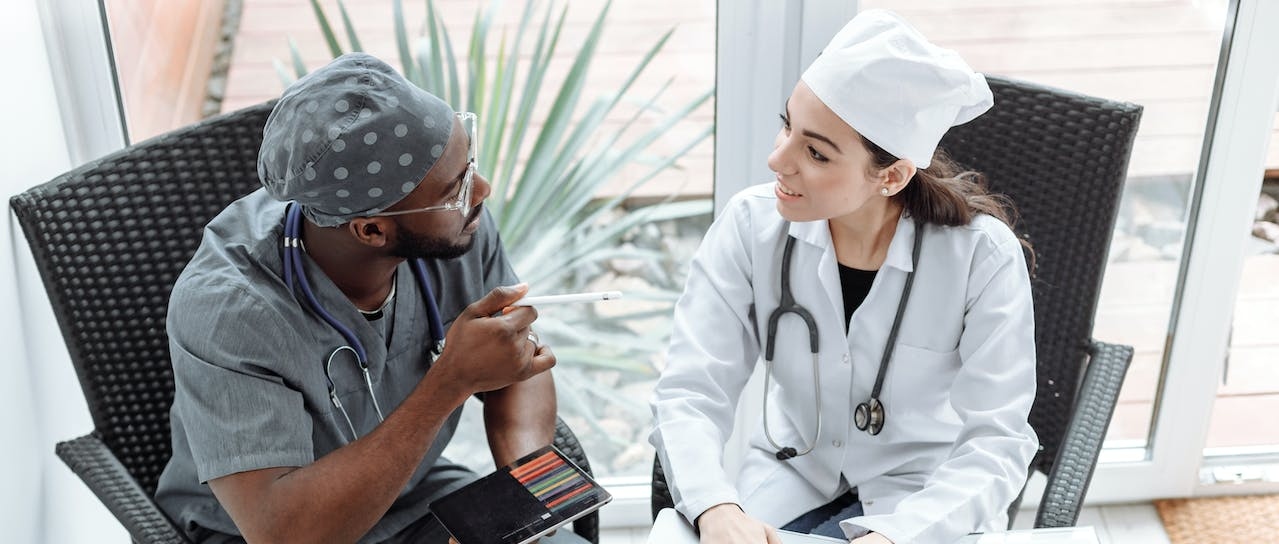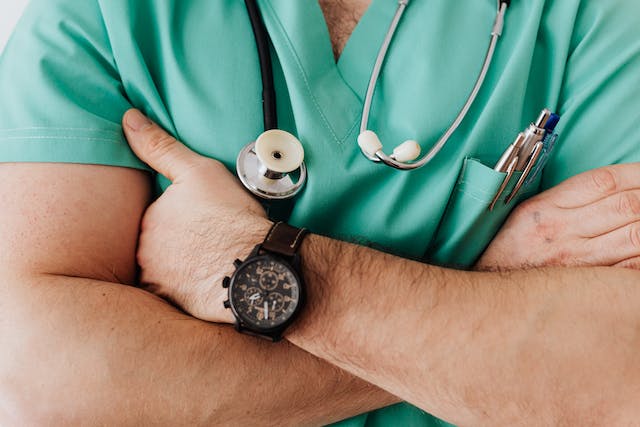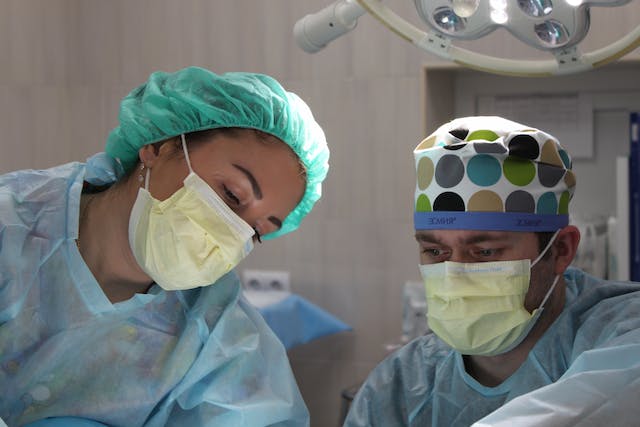Comments
- No comments found

Your family doctor or general practitioner (GP) should be the first person you contact for non-urgent medical issues during regular office hours.
Clinic hours differ by location. GPs can treat common health problems, injuries, and illnesses that don't require prescription meds or trips to the ER. Some specialize in kids or seniors.
Talking to your general practitioner (GP) about your health issues can be hard. You might get nervous or forget things you want to say. Before your next check-up, learn about your health data. Looking at your records helps you understand your situation, ask good questions, and make choices about your care. The question is, are you ready?
Here are some guidelines to help you prepare for a GP (General Practitioner) consultation:
Compile Medical History
Make a list of your current medical conditions and any chronic illnesses.
Note down previous surgeries or major medical procedures.
Medication Record
List all medications you are currently taking, including dosage and frequency.
Include over-the-counter drugs, supplements, and herbal remedies.
Symptom Documentation
Document the symptoms you are experiencing, noting when they started and any patterns.
Be specific about the severity, duration, and any factors that alleviate or worsen symptoms.
Family Medical History
Provide information about illnesses or conditions that run in your family.
Include details about your immediate family members' health.
Allergies and Sensitivities
List any known allergies to medications, foods, or environmental factors.
Mention any sensitivities or adverse reactions you've experienced.
Lifestyle Factors
Share relevant lifestyle information, such as dietary habits, exercise routine, and sleep patterns.
Mention any significant changes in your lifestyle.
Previous Test Results
Bring along any recent medical test results, such as blood tests or imaging reports.
Include a record of vaccinations and preventive screenings.
Questions and Concerns
Prepare a list of questions or concerns you want to discuss during the consultation.
Prioritize them to ensure essential topics are covered.
Insurance Information
Have your health insurance details ready, including your policy number.
Check if the GP is within your insurance network.
Appointment Schedule
Arrive on time for your appointment.
Be prepared for potential follow-up appointments or additional tests.
Schedule Regular Check-ups
Ensure you have regular check-ups to monitor your health and address any concerns promptly.
Establish Trust
Build a trusting relationship with your GP by openly communicating your medical history, symptoms, and concerns.
Nurture the Care Relationship
Foster a caring and collaborative relationship with your GP, valuing their expertise and actively participating in your healthcare decisions.
Remember, effective communication with your GP is crucial for accurate diagnosis and appropriate treatment. Providing comprehensive information will assist your doctor in understanding your health needs and tailoring a suitable care plan.

Preparing well is extra important when you have a first appointment with a new doctor. They don't know your medical history or have existing records on file. Coming organized with symptom lists, medication details, and records gives key background.
It helps a new doctor better evaluate your health and needs for that first visit. This advice applies whether you see an in-person new doctor or have a first online visit.
Step 1: Write down a list of your symptoms and any questions you have for your GP
Making a list helps you remember everything you want to discuss. You can even prioritize the top 3 issues if you have a long list. Writing questions beforehand ensures essential things don't slip your mind. And the doctor can target the most pressing concerns.
Step 2: Gather any relevant medical records
Bring past test results, specialist reports, or hospital papers. Having background health details helps your GP get the whole picture. It jogs your memory of previous treatments tried. It shows how health issues have progressed over time.
Step 3: Bring a list of medications
Include all prescription drugs, over-the-counter medicines, vitamins, and supplements you take. Know the drug names, doses/strengths, and how often you take them. This information helps detect interactions or improvements needed. It also is a handy reference if new medications are prescribed.
Step 4: Consider personal lifestyle factors
Reflect on diet, exercise, sleep habits, blood pressure, or stress levels. These day-to-day factors can influence health and well-being. Telling your GP about lifestyle context helps them understand your health better. And they can suggest changes aligned with your life that make the following advice easier.
Ten minutes may seem short for a doctor's appointment. But it includes everything - from having your name called to writing notes after you leave. Those minutes fill up fast. So, being organized helps make the most of your brief visit. Here's what to do during your visit:
Be honest and open with your GP about your symptoms, concerns, and lifestyle.
Don't downplay or hide anything that's going on. Giving the full picture helps your doctor make an informed evaluation. Feel comfortable sharing sensitive issues - doctors respect patient privacy. Being open builds trust, which improves your care relationship.
Ask questions and seek clarification if you need help understanding something.
Speaking up when confused shows you want to follow medical advice properly. Admit when the doctor uses complex terms you're unfamiliar with. Asking them to rephrase or explain again is perfectly alright. Getting clarity results in better health decisions by you.
Be prepared to discuss your treatment options.
Research different remedies for your condition before your visit. Then, you can actively participate in picking the right approach for your needs and preferences. Compare the pros and cons of medication vs therapy vs lifestyle changes. Ask your doctor for a recommendation that fits your circumstances.

After the consultation and your doctor gives you a prescription, you must take it to the pharmacy or chemist to get your medicine. If you have any questions about the medication, ask the pharmacist.
They can provide extra details to help you understand what you're taking. The pharmacist may offer a cheaper generic version instead of the name-brand medicine your doctor ordered. Ask them to explain how the generic differs. Then, you decide if you want generic or name-brand. Sometimes doctors say you must use the name brand. If so, follow their instructions.
If you have issues once you start the medication, Don't adjust the dosage without asking your doctor first. Tell your doctor about any bad side effects you get. Work together to find a treatment that's better for you.
Choosing the right doctor for your needs is essential. Ask family, friends, and neighbors for recommendations of doctors they use and trust. Narrow options by verifying which take your insurance, then review online ratings and specialties. Schedule meet and greets to get a feel for different practices.
Consider location, office hours, and staff responsiveness to calls and messages when evaluating fits. Stay with a doctor only if you feel comfortable, listened to, and cared for. Don’t be afraid to switch if you’re unhappy with the level of care. Having an excellent doctor-patient relationship fosters good communication and optimal health.
Luke Fitzpatrick has been published in Forbes, Yahoo! News and Influencive. He is also a guest lecturer at the University of Sydney, lecturing in Cross-Cultural Management and the Pre-MBA Program. You can connect with him on LinkedIn.
Leave your comments
Post comment as a guest